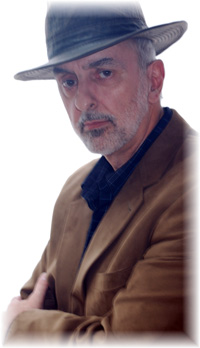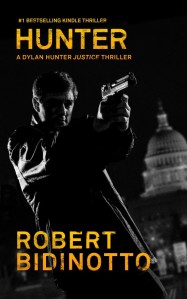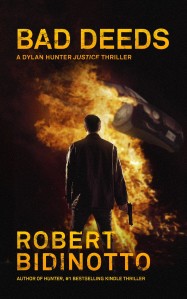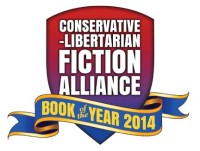Folks, this interview introduction will be longer than usual, because the author I’m spotlighting deserves a proper build-up.
One of the most humbling experiences any writer can undergo is to encounter another writer whose output and success put one’s own to shame. And it’s downright humiliating when that other author began his publishing career the same month you did—but has written and published dozens of thrillers during the same period that you only wrote and published two.
In the hope that I might learn something about literary productivity from a true master of the thriller genre, I approached this man, who has become a legend in the self-publishing field. And he generously consented to this interview.
Featured in The Wall Street Journal, The Times, and The Chicago Tribune, Russell Blake is The New York Times and USA Today bestselling author of around fifty action/adventure and mystery novels. Among his many titles, which you can find at this Amazon link:
The JET series, including: JET; JET— Ops Files; JET— Ops Files: Terror Alert; JET II—Betrayal; JET III—Vengeance; JET IV—Reckoning; JET V—Legacy; JET VI—Justice; JET VII—Sanctuary; JET VIII—Survival; JET IX—Escape; and JET X—Incarceration.
The Artemis Black detective series, including: BLACK; BLACK Is Back; BLACK Is the New Black; BLACK to Reality; and BLACK in the Box.
The Assassins Series, including: Night of the Assassin; King of Swords; Revenge of the Assassin; Return of the Assassin; Blood of the Assassin; Requiem for the Assassin; and Rage of the Assassin.
Plus: Fatal Exchange, Fatal Deception, The Geronimo Breach, Zero Sum, The Delphi Chronicle trilogy, The Voynich Cypher, Silver Justice, Upon A Pale Horse, Ramsey’s Gold, Emerald Buddha, Deadly Calm, and the forthcoming post-apocalypse series The Day After Never, starting with The Day After Never—Blood Honor.
Russell Blake’s non-fiction (yes, he writes that, too) includes the international bestseller An Angel With Fur (animal biography) and How To Sell A Gazillion eBooks In No Time (Even If Drunk, High Or Incarcerated)—a parody of all things writing-related.
As if this weren’t enough, Blake is co-author of The Eye of Heaven and The Solomon Curse with legendary author Clive Cussler. Blake’s novel King of Swords has been translated into German by Amazon Crossing, The Voynich Cypher into Bulgarian, and his JET and Ramsey‘s novels into Spanish, German, and Czech. His JET stories have inspired “fan fiction” by admiring writers through the “Kindle Worlds” program.
 Oh, and there’s more: Blake also writes under the moniker R.E. Blake in the NA/YA/Contemporary Romance genres. Novels include Less Than Nothing, More Than Anything, and Best of Everything.
Oh, and there’s more: Blake also writes under the moniker R.E. Blake in the NA/YA/Contemporary Romance genres. Novels include Less Than Nothing, More Than Anything, and Best of Everything.
Having resided in Mexico for a dozen years, Blake says he enjoys his dogs, fishing, boating, tequila, and writing (he wasn’t clear to me about their order of priority), while battling world domination by clowns. This speed-writing demon generously took time from his insanely busy writing schedule to answer my questions during a coffee break while cranking out his latest novel. Really. Buckle in, and prepare to meet a literary marvel. Then visit his website, http://russellblake.com/, to learn more about him and his many books.
~*~
The Vigilante Author: Russell, thank you for your willingness to share with my readers a bit of yourself, your journey, and your work. I hope they’ll be sufficiently intrigued and inspired to check out your books, which I think they’ll love.
Since you began self-publishing in June 2011—the same month I did—you’ve written an amazing number of novels and sold millions of copies. Your incredible output and success have earned the attention of major media and the entire book industry.
So why don’t we begin by letting you say something about your books. And maybe focus a bit on your latest novel.
Russell Blake: Well, I’ve written about fifty at last count, so beyond saying they’re mainly action thrillers and mysteries, it would take all day. But they’re popular, and continue to sell well, so I must be doing something right.
 As to the latest one, I’m very excited by it. It’s the first novel in a new post-apocalyptic series that I honestly think is some of my best work. Titled The Day After Never—Blood Honor, it goes live April 18th, and should do well in the genre. I have high expectations for this one, higher than for any series since I published JET three years ago, which remains a bestseller for me.
As to the latest one, I’m very excited by it. It’s the first novel in a new post-apocalyptic series that I honestly think is some of my best work. Titled The Day After Never—Blood Honor, it goes live April 18th, and should do well in the genre. I have high expectations for this one, higher than for any series since I published JET three years ago, which remains a bestseller for me.
The Vigilante Author: I’ve just started reading your work, beginning with the original JET, which I’m enjoying for its amazing pacing and colorful action scenes. Yet your writing seems varied. What are your preferred genres?
Russell Blake: Action/Adventure, mainly, with some mysteries (BLACK series) and some conspiracy thrillers (Upon a Pale Horse, The Delphi Chronicle, Zero Sum, Silver Justice, Fatal Exchange, and Fatal Deception).
The Vigilante Author: You’ve created a host of interesting characters. For instance, Jet, one of your heroines, is an unusual female spy and assassin, with a background in the Israeli Mossad. What do you do to conjure distinctive heroes and heroines?









 Photo (c) by Debbie Scott
Photo (c) by Debbie Scott





A Romantic Respite from Cultural Corruption
This piece in the New York Post offers a bill of indictment against contemporary crudeness and crassness in popular culture. Reading it, I thought I’d briefly share my own perspective.
As a writer of thrillers that present a crusading, romantic vigilante hero — a modern Zorro — I feel completely alien from today’s nihilistic pop culture, especially its fiction, TV, and films.
Gore-fests are now common in TV series.
While violence and sexuality certainly are present in my thrillers, I take considerable pains to avoid the gory, graphic, and gratuitous. I prefer to keep the violence impressionistic, the sex romantic, and the language PG-13 (at worst), rather than X- or even R-rated.
My stories deal with rough, tough people doing a lot of vicious and violent things. However, fiction always has dealt with unpleasant subject matter, yet the finest narrative artists have never found it necessary to descend into gore-fests, or to detailed descriptions of degeneracy and perversion, in order to write tales about evil that are compelling. (Think of Fyodor Dostoyevsky, for example.)
Art is all about selectivity in presenting reality. Artists do not have to show everything, let alone dwell on it, in order to focus on the most important things.
Just as good art can inspire and edify us, so can corrupt art dispirit and degrade us. Our minds and souls are trained, habituated, and ultimately shaped by our artistic experiences. A steady diet of the morbid and the ugly shrinks us to the subhuman.
I know many readers appreciate discretion and good taste from storytellers. I like to think they enjoy my books as a romantic respite from the sordid ugliness and dispiriting cynicism that is infecting our society through degrading art.
When the cultural pendulum swings back — as I believe it will, and soon — those artists who haven’t succumbed to trendy sleaze stand to benefit.